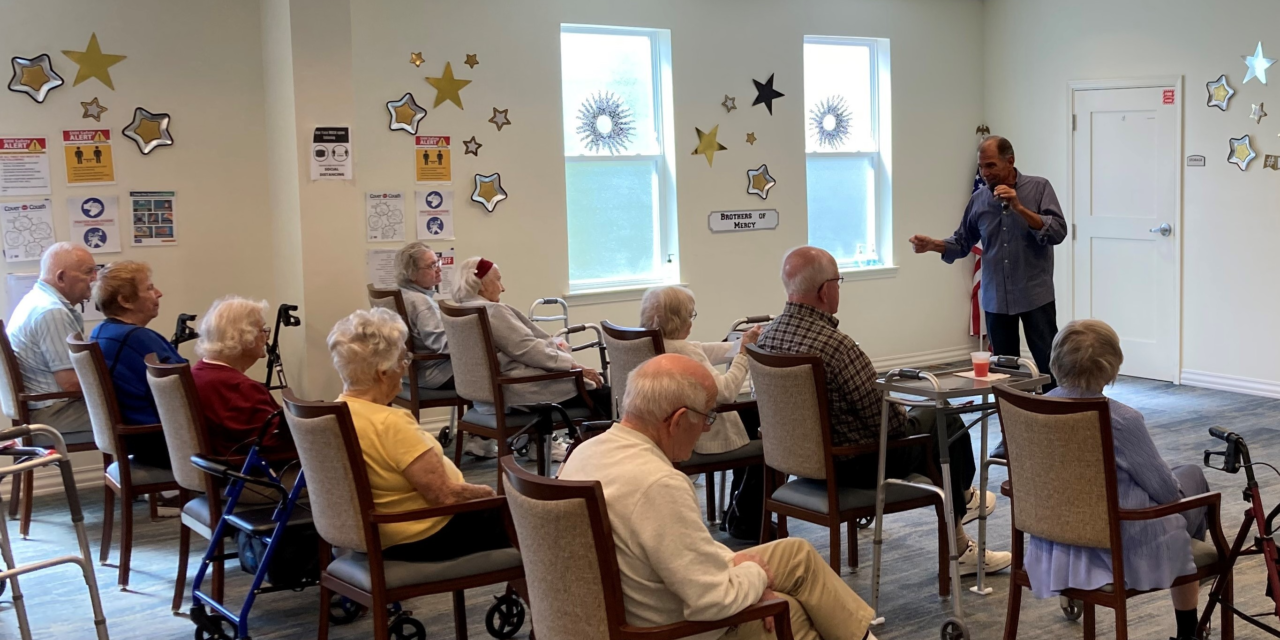By Michael R. Perez, LPN
Are you struggling to get your loved one living with dementia to participate in activities they always enjoyed? This is very common in the dementia disease process, and leaves many family members and caregivers puzzled as to how to respond.
It is important to understand that because dementia is progressive, symptoms worsen over time. It is therefore important to develop a plan for daily activities that aligns with a dementia patient’s cognitive abilities and embraces their remaining functions. Often, this means that the activities your loved one previously enjoyed have become too difficult for them to engage in, resulting in a loss of interest. They may not even understand the tools required for activities. For example, they may view knitting needles as very large toothpicks. Guidance and oversight are very important for keeping dementia patients safe.
To ensure safety, and to plan appropriate activities for dementia patients, it is important to establish a baseline of the individual’s overall cognition. A few great tools used for this purpose in the medical community are the Mini Mental State Exam, and the Brief Interview for Mental Status. Each provides insight into thought formation, recollection, object identification, and application of thoughts, ideas, and new information. The assessments include common questions, such as naming an object and what it is used for, today’s date, and asking a person to recall three words and recite them back when prompted. Used periodically, the assessments help identify further progression or loss of ability.
Once the baseline and progression are identified, alterations can be made to daily activity routines to enhance abilities such as speed, interaction with program participants or leaders, and the setting in which the activity takes place. As an individual declines further, such assessments and adjustments become more crucial as the level of assistance necessary to complete the activity will eventually increase.
Assisted living facilities with memory care are creating individualized enrichment activity programs to enhance the overall care and attentiveness of each resident. One example, “The Stellar Program” at Sacred Heart Home Assisted Living & Memory Care on The Brothers of Mercy Wellness Campus, aids staff in navigating and improving each resident’s transition to and engagement in facility living. The program essentially categorizes residents into separate “Stellar Groups” of individuals who are at the same or similar stages of cognition to enjoy and participate in activities designed for their capabilities. Residents involved in the Stellar Program are categorized as a “sun” for higher functioning, a “moon” for moderate functioning, and a “star” for the lowest cognitive level. To remember these tiers, the metaphor, “The farther out in the galaxy, the farther out in the mind,” is used.
Differentiating individualized group activities based on cognitive ability helps staff ensure that residents remain engaged in enrichment programming at a level they can enjoy, which helps them maintain their sense of dignity, purpose, and a better quality of life.
Michael R. Perez, LPN, is Assistant Director of Health Services at Sacred Heart Home Assisted Living & Memory Care on The Brothers of Mercy Wellness Campus.












